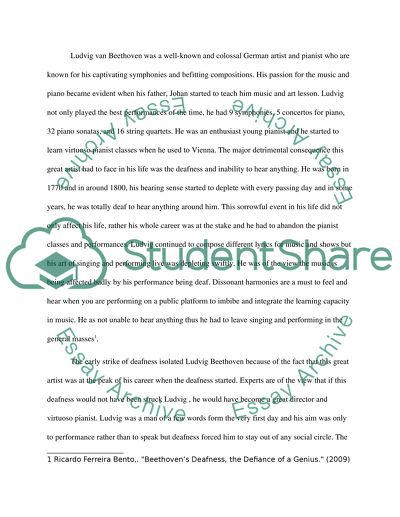Cite this document
(“Beethoven's Hearing Loss & Its Effect On His Music Research Paper”, n.d.)
Retrieved from https://studentshare.org/music/1482880-beethovens-hearing-loss-its-effect-on-his-music
Retrieved from https://studentshare.org/music/1482880-beethovens-hearing-loss-its-effect-on-his-music
(Beethoven'S Hearing Loss & Its Effect On His Music Research Paper)
https://studentshare.org/music/1482880-beethovens-hearing-loss-its-effect-on-his-music.
https://studentshare.org/music/1482880-beethovens-hearing-loss-its-effect-on-his-music.
“Beethoven'S Hearing Loss & Its Effect On His Music Research Paper”, n.d. https://studentshare.org/music/1482880-beethovens-hearing-loss-its-effect-on-his-music.


